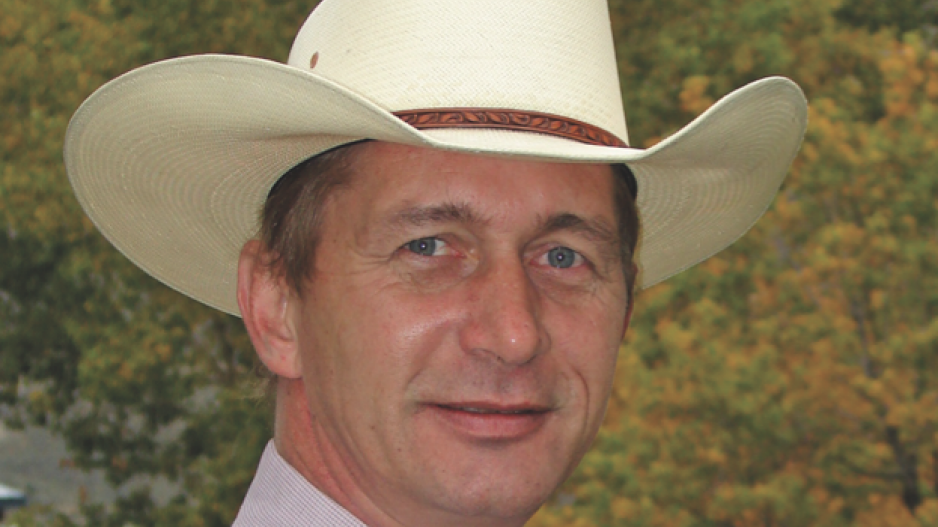This year’s wildfire season has already had enormous impact on British Columbia’s cattle industry, according to regional cattlemen associations.
The effects have been “massive” across multiple fronts, says Cordy Cox, president of the Cariboo Cattlemen’s Association.
“People have not only lost homes and buildings, but there’s also dead or injured cattle and the long-term health effects to some cattle. The ranchers have lost miles and miles of fences; their summer and fall pastures that sustain the cattle until they sell them in the fall are burned up and gone. Some have lost their hay crops, their bales, it goes on and on.”
Cox added that some of the lingering effects won’t be felt for months or even years. Cattle that have smoke inhalation damage have to be sold at a discount, and many more will be euthanized.
The provincial cattle industry has thus far lost approximately one million acres to the 2017 wildfire season.
Kevin Boon, general manager of the BC Cattlemen’s Association, said the fires have had a “huge” impact on the industry. He noted the full extent of the damage is not known because evacuation orders have prevented a lot of farmers from getting to their land to assess the destruction.
“Basically, any of the fires that have taken place have been in some of our prime cattle grazing land,” added Boon. “We call them forest fires, but underneath that is a lot of grass and that’s what we depend on.”
Most of the fires this year have been in either the Cariboo Fire Centre, which is made up largely of the Fraser plateau in the Interior. Dozens of fires are also burning in the Kamloops Fire Centre area, which stretches across the Thompson plateau, directly southeast of the Cariboo Fire Centre’s jurisdiction.
Cox, who owns and operates a ranch with her husband, has approximately 1,230 head of cattle. Her farm sits on nearly 500,000 acres of Crown range land, in Kleena Kleene, west of Williams Lake. Cox was evacuated in early July and was able to get all of their cattle out of the wildfire’s path before it destroyed most of their range land.
“When that fire started, we got put on evacuation order on July 9,” said Cox. “Obviously, none of the ranchers in the area went anywhere. We couldn’t afford to because there were no official resources to fight that fire at the time because all [of them] were busy trying to keep the towns from burning down – Williams Lake and 100 Mile House.”
The B.C. cattle industry has approximately 4,086 ranches, making up 5% of the national cow herd. Ranches across B.C. occupy more than five million acres of private land and have tenure for an additional 21.5 million acres of Crown range land, mostly within the Peace River Regional District, the Cariboo Regional District and the Thompson-Nicola Regional District. In total, the provincial cattle industry is made up of approximately 545,000 head of cattle.
Boon said he’s not sure how many cattle have been affected by the evacuation orders and fires themselves, but estimates it’s somewhere between 25,000 to 30,000. He noted that one large ranch close to Ashcroft, which also has a dairy operation and a feed lot, has been hit particularly hard by a wildfire and already has an insurance claim estimated at more than $20 million.
He said the burnt grass should be back by next season. However, a lot of the infrastructure, including fences and corrals, across the province might be irreplaceable.
“Things like those take a lifetime to build. They’re not something that they build every year, so it’s a large investment and a huge loss to them,” said Boon.
The provincial government announced last week that it will commit $6.2 million to support replacement of livestock fencing and Crown range infrastructure destroyed by wildfires.
The BC Cattlemen’s Association has worked out an arrangement with the Cariboo Regional District to streamline the process of getting ranchers permits to enter evacuated areas to tend to herds and land.
However, they have not made headway with the Thompson-Nicola Regional District.
“We understand the need for human safety,” he said. “But there doesn’t seem to be an understanding that the ranchers probably know that land as to what a fire would do as [much as] a fireman. A lot of them have been involved in fires in their areas before, and they’re being treated very much like a liability.” •




